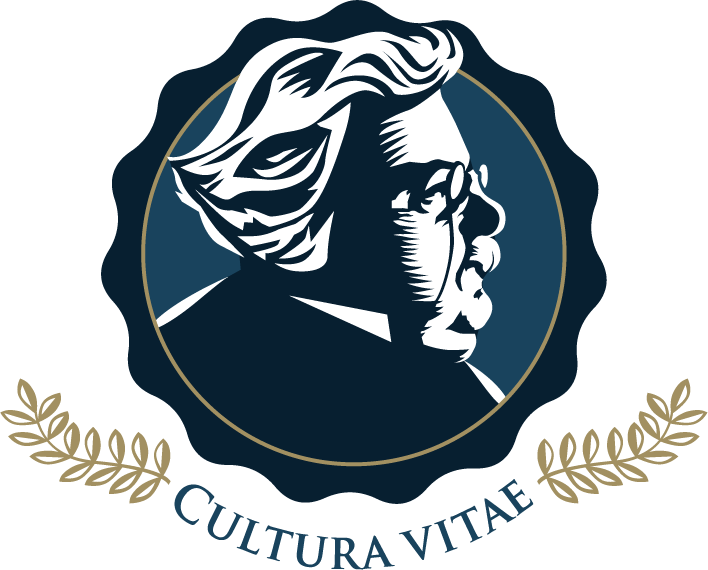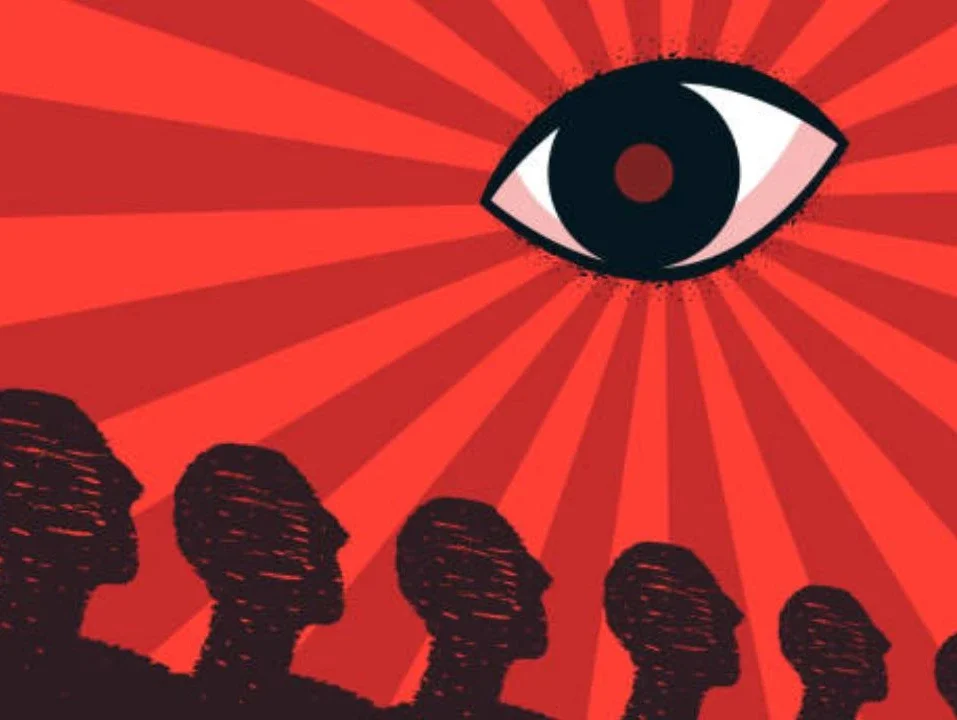Tyranny Starts with Words
G.K. Chesterton argues, in Eugenics and Other Evils, that medical tyranny and eugenicism are related in that both place their abstract ideals above man and his fundamental human rights. Early in the twentieth century, Chesterton could see that Eugenics is really a new kind of State religion, and that medical tyranny was helping to accomplish the mechanistic ideal of total control over human beings. The modern mind “is set in an attitude which would enable it to advance, not only towards Eugenic legislation, but towards any conceivable or inconceivable extravagances of Eugenics.”[1] This logic – the underlying logos of Eugenics – led to government control of the health of the community and of the personal habits of citizens. “…the excuse for the last oppression will always serve as well for the next oppression; and to that tyranny there can be no end.”[2] In Chesterton’s opinion, there is no authority by which man should rule other men’s personal health, and any man who would accept such a role is the very worst sort to do it.
Both Chesterton and Mattias Desmet reflect on the power of words, of narrative (or stories) to cause an intellectual blindness in otherwise intelligent people. Even believers in the ‘greatest story ever told’ are vulnerable to acceptance of the lies from which strongholds of unbelief rise up within them. They begin to resonate with the voice of the dominant narrative as though it were true; to call good evil and evil good, and to become impotent to voice any objection as they are led into bondage. Without adequate intellectual infrastructure we are in danger of resonating with – of coming into lockstep with – a system of lies, and a culture of death. Surely this is the first ground on which our battle for good health must be fought.
The psychological essence of totalitarianism is the reduction of the “polysemy of human language to the monosemy of a sign system.”[3] Polysemy – the existence of multiple meanings for a word – is a quality of human language and thus a quality of human being. It provides for a certain playfulness in the human experience, for the necessity of in-person social interactions, for the capacity of the mind to learn from one thing to another analogically, and for the possibility of poetry. Monosemy, in contrast, is a forced truncation of meaning to which insecure people resort, to avoid the inherent tensions of play, human presence, reality’s provocation, and the work of poesis.
The fear and insecurity of the populace play into the hands of those who would wield power by controlling our words, our stories, our meanings. An intellectual infrastructure that is proof against lies begins in the words we use. A healthy mind is predicated upon, or ‘built’ of, truth, reality, and excellent verbal structure.
Science is not Purely Objective
Creation is, on every level, coherent, whole, designed, ordered, and potentially knowable. I have no idea what science will discover next about the layers of God’s handiwork. Some physicists now speak of hundreds of dimensions. My mind boggles, but I have no fear that science or human experience will ever break through to some insight that threatens Reality itself. “In God I live and move and have my being.”[4] Self is woven upon the same loom of Holy Wisdom as all Creation. There is someplace beyond this whole universe of form where none of its laws apply, but that ‘beyond’ is not a void, not empty of law, not the unmaking of me. It is the Love that made me, the Being that embraces me. Beyond is a Person.
Science’s attempt to look at the world purely objectively is laudable, but impossible. Scientists are still biased according to beliefs that involve their human subjectivity, and either resolve that tension or pretend it away.[5] Some aspire to control, others to serve Creation. Some give glory to God for the wonders, and wondrous order, they discover. Others consider themselves gods over anything they believe they understand. We all – scientists included – look at the same Reality and see it differently because of our beliefs about it. No one is immune from bias, or sees with pure objectivity. One sees man at the center, meant to steward the anthropocentric earth, microcosm of all Creation, able to see God’s fingerprint-the-Trinity in the smallest to the largest orders of magnitude, drawn by Reality toward his own fulfillment, and realizing nature by supernatural light. Another sees man small in the impersonal universe, real only in the perceptions of his fellow man, held only in fleeting neural impulses, and dissolving on closer inspection into aggregations of atomic vibrations.
The new ‘story’ of the mechanistic, materialist universe is that complete objectivity is possible and is embodied in Science (rather than in God). Scientific and medical research’ have deteriorated in the post-Enlightenment years of man’s reduction and atomization, as Desmet details. Artificial light and clock-timing contributed to the industrial revolution that changed man’s relationship to the world. “Prior to mechanization, man’s world of experience constantly resonated with nature’s every-varying language of forms; after mechanization, he was mainly absorbed by a monotonous, mechanical rhythm.”[6]
As human interaction declined, mass media filled the void, further flattening human social exchanges. The boundaries to freedom supplied by traditional social structures broke down as those structures broke apart – leaving man alone, anonymous and anxious. “The proliferation of meaningless work” and over-reliance on ‘experts’ led to “endless proliferation of rules, procedures, and administration” and “interpersonal mistrust and inability to tolerate uncertainty and risk. …today’s compulsion to regulate and control is a frenetic attempt to master ever-growing anxiety.”[7]
Desmet details the many medical scandals that have resulted from the poor quality of medical research. ‘Science’ has contributed to the horrors of war, and concern for the actual welfare of human beings seems to have been sacrificed at the altar of a Science reduced to absurdity. “Due to the industrialization, mechanization, and technoligization of the world, production capacities, economic power…and psychological power (via mass media) fell into the hands of an ever-decreasing number of people.” The result of all this is the atomization of man. “It is this atomized subject in which we recognize the elementary component of the totalitarian state.”[8]
According to Desmet, the ideological bias of allegiance to the mechanistic interpretation of reality extends from research design to scientific journals, into an increasingly narrative-captive mass media, and into polarized public discourse. “It is the unspoken tensions, fears, and disagreements on an ideological level that prevent the numbers from settling down and that makes society polarize. The real questions to be asked are situated at the ideological level. For instance, do we view man as a biochemical machine that has to be technologically monitored and pharmaceutically adjusted, or as a being that finds its destination in mystical resonance with the Other and with the eternal language of nature?”[9]
The Enlightenment’s “idealization of the human intellect eventually led to an intensification of fear of disease and suffering, in which interhuman relationships were marked by uncertainty and confusion. The old commandments and prohibitions were eventually replaced by a jungle of rules and regulations and a new, hyper-strict morality.”[10] “The effects of this desperate attempt to control life go beyond a detrimental impact on our physical health. It also severely affects our freedom and rights, as individuals….The societal increase of fear and insecurity leads to two other psychological phenomena: narcissism and …regulation mania.”[11]
Monosemy is Loss of Capacity for Tension
The horrible irony of Christians’ acceptance of the mechanistic story of the modern age is that its foundation is the elimination of a Creator. The medieval Fathers’ notions that man is a center and microcosm of reality, that God’s glory is speaking to us through the forms of Creation, that a ladder of proportion links the physical to the metaphysical and grants insights from one to the other through Holy Wisdom, and that suffering may be used by God for the soul’s and the world’s great good are cast aside by ‘science,’ and so many Christians accept it without question. St. Hildegard’s use of the word ‘viriditas’ to describe the ‘living-ness’ in the world sounds ‘new agey,’ or too much like ‘life force’ to monosemists, and her insights about promoting good health are discarded. The herbal lore of monks is a thing of the dim past – surpassed by pharmacological ‘progress.’
Alastair MacIntyre cautions that as man flattens into ‘organization man’ – a cog in the economic machine – he suffers from over-reliance on experts. We can honor the medical profession without becoming enslaved. As explained in the encyclical Fides et Ratio, reason is predicated on reasonable trust. Now that ‘Medicine’ is willing to abort babies, cut off healthy limbs and genitals, fight against proven medical cures for cancer, ignore connections between breast cancer and abortion, escalate an opioid crisis, dismiss an epidemic of autism as unremarkable, etc…., the time for reasonable trust may be coming to a close.
Models are Verbal Structures that Matter
Not only are our minds supported in freedom by excellent intellectual infrastructure that resonates with Truth, but they are supported by exterior structure as well. There is so much to know, to appropriate, to understand, that any individual cannot bear it all. Naturally, oral and written knowledge is passed down through the generations, and acts as a community way of holding onto, categorizing, and making meaning from the experience and experiments of individuals. That superstructure can be quite a burden itself to learn, but, ideally, enables each individual to further the work of knowing started by his elders.
A modality, or way of acting, begins in a model, or way of thinking. Each is a structure that mediates between your internal, personal experience of Self and the accumulated experience of others in contact with the realities of the world that affect us all. From within the verbal structure of an inherited model for organizing and conserving knowledge, it can become difficult to imagine any other way of ordering it. When one encounters something that does not fit, he may simply ignore it. Especially if a new encounter with Reality seems to threaten the entire structure, its data may be suppressed as the structure itself seems to need defense against it.
In Conclusion
The ‘univocal,’ or ‘monosemic’ use of words leads to an intellect that acts like a messed up immune system – hyper-reactive, inflamed, self-destructing, and unable to fight the body’s enemies. Just as it is amazing how broken down a person’s health may be while they continue to survive, it is amazing that a relatively free society can co-exist with the totalitarian poison…until it can’t. The long, gradual ruination of health can result – all of a sudden – in a collapse of health that was predictable all along the way. True health must involve the thriving, whole human person, in his physical, mental, emotional, and spiritual unity.
[1] G.K. Chesterton, Eugenics and Other Evils, 100
[2] G.K. Chesterton, Eugenics and Other Evils, 102
[3] Mattias Desmet, The Psychology of Totalitarianism, 113
[4] Acts 17:28
[5] See the Fall 2013 issue of Humanum, “Catholicism and the Future of Medicine” for powerful contributions toward this discussion, and for many excellent further references.
[6] Desmet, 26
[7] Desmet, 29-30
[8] Desmet, 34-35
[9] Desmet 61
[10] Desmet 66
[11] Desmet 68
This article is excerpted from the 2025 second edition of Souls at Work.

